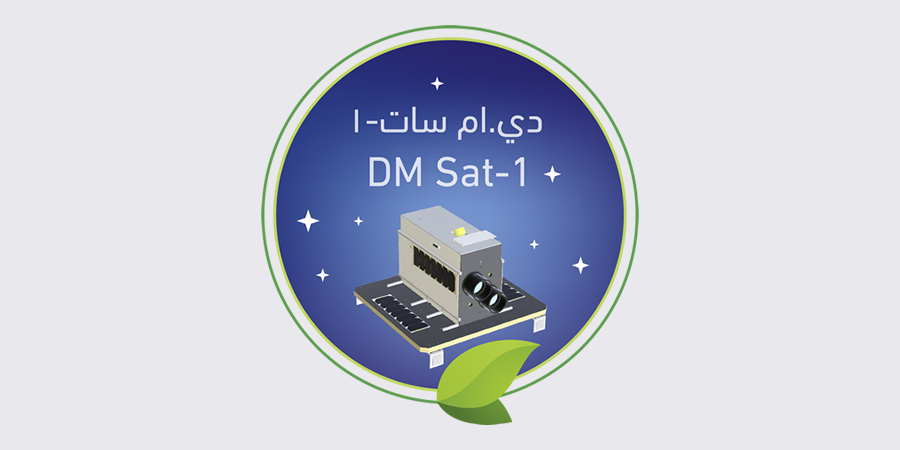The region’s first environmental nanometric satellite is scheduled to take off from Baikonur Cosmodrome in Kazakhstan on 20th March, 2021, Dubai Municipality, in collaboration with the Mohammed Bin Rashid Space Centre (MBRSC), has announced.
The preparation for the launch of the DMSat-1 satellite as part of a high-technology project
undertaken to develop solutions to environmental challenges and address climate change is underway, according to the state news agency.
The rocket will be launched at 9:07 am Moscow time (10:07 am UAE time). The satellite is expected to separate from the launch vehicle into its orbit at 2:20 pm (UAE Time), and send its first signal at 3:00 pm (UAE Time).
DMSat-1 will monitor, collect and analyse environmental data as well as measure air pollutants and greenhouse gases. The environmental satellite will also help create maps of the concentration and distribution of greenhouse gases in Dubai and the UAE, and study seasonal changes in the presence of these gases.
Data provided by the satellite will be used in several areas including finding solutions to environmental challenges, developing long-term plans to address urban pollution and climate change and environmental forecasting in Dubai. This data will also help enhance the emirate's leading role in developing quality projects and pioneering research in the domain of climate change.
The DMSat-1 project is expected to help build new capabilities in the field of environmental research at the local level, and provide new opportunities for harnessing space technology to enhance environmental sustainability.
Overseen by the Mohammed Bin Rashid Space Centre, the project was implemented in collaboration with local and international research teams. Based on Dubai Municipality's requirements, MBRSC built the satellite in collaboration with the Space Flight Laboratory (SFL) at the University of Toronto, which has a successful history of launching satellites similar to DMSat-1.
The centre is also managing launch-related activities and developing advanced solutions to utilise the data generated by the mission. It will continue to support the project by managing the provision of data generated by the project to Dubai Municipality.
Commenting on the development, Dawoud AlHajri, Director-General of Dubai Municipality said that essential data provided by the DMSat-1 satellite will enable Dubai Municipality to respond to global environmental changes, identify steps to combat climate change and develop long-term environmental plans.
It will also help both sides environmental studies deliver tangible results by promoting academic research, boosting ecological monitoring and contributing to upcoming technological ventures.
Meanwhile, Yousuf Hamad AlShaibani, Director-General of MBRSC, said, "The emergence of new capabilities and competencies is helping the country expand its expertise in using space technology to provide solutions, develop different sectors and harness new horizons in this field. Local institutions are increasingly interested in the space sector and in utilising advanced scientific methods to meet challenges. The launch of the DMSat-1 satellite supports the UAE’s aspirations in this field."
The launch of the satellite strengthens the UAE’s implementation of the Paris Climate Agreement, which requires the country to generate data on greenhouse gas emissions and build national capacities to study global warming.
On a local level, the DMSat-1 seeks to calculate the rate of carbon dioxide emissions in relation to GDP as outlined in the Dubai 2021 Plan, study the environmental impact of the Dubai Clean Energy Strategy 2050 and the results of the UAE Energy Strategy 2050, as well as contribute to the ‘National System for Greenhouse Gas Emissions Management’ that is part of the National Climate Change Plan 2017-2050.
A team of specialised engineers and project supervisors from the Mohammed Bin Rashid Space Centre have been based at the launch site at Baikonur Cosmodrome in Kazakhstan since 25th February, 2021. The satellite was placed on the launch rocket on 7th March, 2021, for initial preparations and tests which will continue until 12th March, the last day of inspection of instruments before launch.











